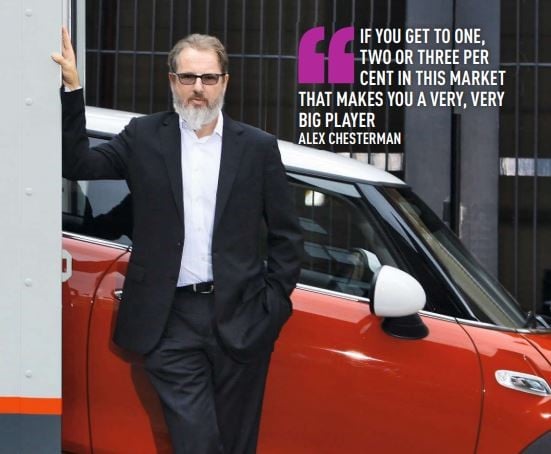Online used car dealership Cazoo has completed its debt restructuring programme after bondholders reached an agreement to exchange $630 million of debt for $200 million in bonds and shares.
The business said the new structure will now provide Cazoo with a far better financial foundation and sets the stage for its next chapter of growth – one without its controversial founder Alex Chesterman, however.
Paul Whitehead, the current CEO of Cazoo, said: “Completion of these transactions represents a significant inflection point for Cazoo. With an improved capital structure and encouraging operational momentum, as demonstrated by our successive record retail GPU figures and much-improved unit economics, we can look to 2024 with confidence."
Whitehead extended gratitude to Alex Chesterman, the outspoken founder of Cazoo, who, as part of this restructuring, is officially stepping down, marking the end of an era for the company.
The boardroom changes come as Cazoo aims to pursue strategic goals that include achieving profitable growth, securing a larger share of the UK used car market, and exploring innovative initiatives to complement its business model and brand.
Cazoo said its new board will be headed by incoming chairman Tim Isaacs who brings expertise from having advised companies across various sectors, including retail, healthcare, business services, and industrials.
Joining Isaacs on the new board are Alan Carr, an experienced investment professional specialising in financially distressed companies; Andrew Herd, a chartered accountant; Nicholas Pike, a solicitor and management consultant; and Mary Reilly, who has been a Cazoo director since February.
Cazoo, founded with the promise of revolutionising the car-buying experience through online sales, witnessed rapid growth by acquiring businesses such as Imperial Car Supermarkets, vehicle prep sites, and car subscription companies.
Vowing to transform how eight million used cars are bought each year by putting the entire process online, Cazoo launched its UK used car retail portal in late 2019 with pre-launch backing of £80 million and a stock of BCA-supplied 1,500 vehicles.
Speaking to AM shortly after its launch, Chesterman, who had often been critical of the traditional dealership model, said: “The difference between us and certain others in the industry, if there is one other than digital versus physical dealership, is we’ve always been consumer-first in our thinking. I’ve always come at things from that perspective of what is the best we could do for consumers.
“And regarding profitability down the road, we almost take the view that if you do a great job with the consumer the other bits that matter will fall into place. You win repeat business, market share, you get great word of mouth, you build trust, and all of those things should lead to a profitable business. If you don’t do all of those things you won’t have a good business.”
Earlier this year, Cazoo revealed the online used car retailer’s £704 million losses for 2022.
Revenues rose 91% to £1.25 billion as the business delivered 65,366 units during the 12-month period to December 31, but the New York Stock Exchange-listed operation’s losses racked up as it withdrew from Europe and cut its UK car handover network and headcount in an effort to deliver annual savings of £200 million.
Despite extensive marketing efforts and sponsorship deals, Cazoo struggled to achieve profitability however, with its valuation plummeting from nearly $7 billion at its 2021 launch on the New York Stock Exchange.
Chesterman insisted in January that Cazoo’s three years of trading had demonstrated that there was “a significant appetite for buying and selling cars online”, adding that its proposition was still “resonating strongly with consumers”
















Login to comment
Comments
No comments have been made yet.